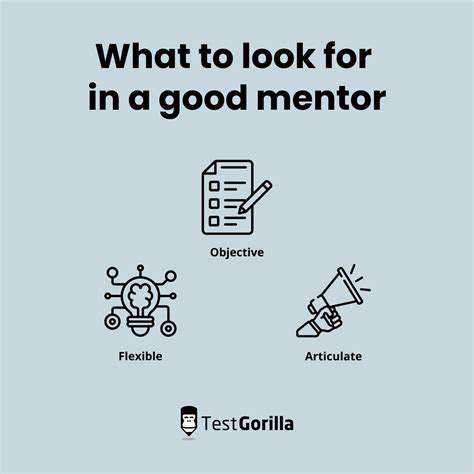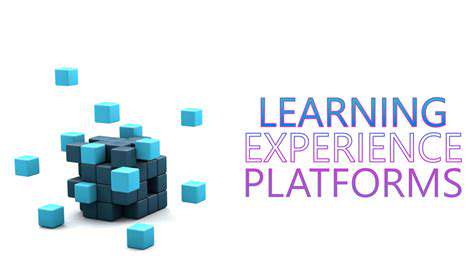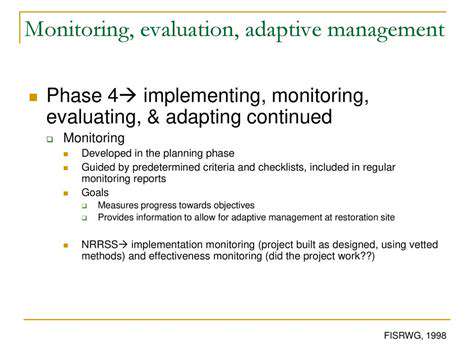How to Find a Mentor for Your Career
Identifying Your Ideal Mentor Profile

Identifying Your Ideal Mentor Profile
Choosing a mentor is a significant decision that can profoundly impact your career trajectory. A good mentor can offer valuable guidance, insights, and support, helping you navigate challenges and reach your professional goals. Therefore, it's crucial to identify a mentor whose profile aligns with your specific needs and aspirations. This process involves careful consideration of various factors to ensure a mutually beneficial relationship.
Consider their experience and expertise. Look for mentors who have demonstrated success in areas relevant to your career aspirations. Their expertise should be directly applicable to the challenges and opportunities you anticipate in your field. Understanding their accomplishments and track record will provide insight into their ability to offer effective guidance.
Their network and connections are also important. A mentor with a strong professional network can open doors to opportunities and provide valuable introductions to key individuals in your field. This can be instrumental in expanding your professional horizons and accelerating your career progression.
Understanding Your Mentoring Needs
Identifying your specific needs and expectations is crucial when seeking a mentor. Consider what you hope to gain from the mentorship relationship. Are you looking for guidance on a particular skill set, career advancement strategies, or industry insights? Articulating these needs clearly will help you identify a mentor whose expertise aligns with your goals.
Reflect on your career aspirations and goals. Understanding your long-term career ambitions is essential for selecting a mentor who can help you achieve those objectives. A mentor who understands your vision and can provide tailored guidance is likely to be more effective in helping you reach your goals. This reflection process will help you determine the characteristics and experience you seek in a mentor.
Consider the mentor's communication style and personality. A successful mentorship relationship depends on effective communication and a compatible working style. A mentor who communicates clearly and effectively, and whose personality resonates with yours, will likely foster a more productive and enjoyable experience.
Ultimately, the goal is to find a mentor whose experience, expertise, network, and personality align with your needs and aspirations. This will maximize the potential benefits of the mentorship relationship and lead to a more fulfilling and successful career journey.
Finding the right mentor is an investment in your future. It's a crucial step in your professional development and growth. This process requires careful consideration and introspection, ensuring that you choose a mentor who can provide the guidance and support needed to reach your aspirations.

Crafting a Personalized Mentorship Proposal
Defining Your Mentorship Needs
A strong mentorship proposal starts with a clear understanding of your career aspirations and the specific areas where you need guidance. Think about your long-term career goals, the skills you want to develop, and the industry knowledge you're seeking. Identifying these specific needs will help you frame your proposal effectively and allow you to focus on finding a mentor who can address them. For instance, if you're aiming for a leadership role, you might need mentorship in strategic planning or team management. Articulating these needs clearly in your proposal will attract mentors who can provide targeted support and insights.
Consider what kind of mentorship style would be most beneficial to you. Do you prefer structured meetings with specific agendas, or a more flexible approach where you can reach out for advice as needed? This self-assessment will help you tailor your proposal to the type of mentor who can best support your learning style. Knowing your preferred communication style and the frequency of interaction you desire will also help you find a mentor whose availability aligns with your needs.
Researching Potential Mentors
Thorough research is key to finding a mentor who aligns with your career goals and professional values. Explore professional networks, industry events, and online platforms to identify potential mentors who have relevant experience and expertise in your field. Look for individuals with a track record of success, strong leadership qualities, and a genuine interest in supporting others. Consider their published work, presentations, or any available information about their career path. This research will help you create a targeted proposal that speaks directly to their experience and areas of expertise.
Don't limit your search to just people in your immediate network. Expanding your search to include individuals in different companies or industries can offer unique perspectives and broaden your understanding. Networking events, industry conferences, and online professional communities can be valuable resources for discovering potential mentors who can provide a fresh viewpoint and insights into diverse career paths.
Outlining Your Expectations and Contributions
Clearly articulate your expectations for the mentorship relationship. Explain how you plan to contribute to the partnership, outlining your commitment to the process and your willingness to actively participate. Be specific about the frequency of meetings, the topics you'd like to discuss, and the desired outcomes. For instance, you might propose regular one-on-one meetings, participation in industry events, or the exchange of relevant articles and research to further your learning.
Detailing your willingness to actively participate in the mentorship relationship is crucial. This could involve sharing your progress, seeking feedback on your work, and proactively engaging in discussions. Demonstrate your initiative and eagerness to learn by outlining specific actions you'll take to apply the mentor's insights. This showcases your proactive approach and commitment to the mentorship experience.
Crafting a Compelling Proposal
Your mentorship proposal should be concise, professional, and tailored to the specific mentor you're approaching. Highlight your career goals, desired areas of development, and how the mentor's expertise can help you achieve these objectives. Emphasize your commitment to the relationship and outline a clear plan for interaction. For example, propose a specific timeframe for the mentorship, a defined frequency of meetings, and desired learning outcomes. Be clear about your expectations for the mentor's involvement and how you plan to contribute to the partnership.
Present your proposal with a professional and well-written tone. Use clear and concise language to effectively convey your needs and intentions. Proofread carefully to ensure your proposal is free of errors and presents a polished image of your professionalism. A well-crafted proposal will significantly increase your chances of securing a valuable mentorship opportunity.
Nurturing the Mentorship Relationship
Understanding the Importance of Mentorship
Mentorship is a powerful tool for career advancement, offering invaluable guidance, support, and insights from experienced professionals. A strong mentorship relationship can provide a framework for navigating career challenges, identifying opportunities for growth, and accelerating professional development. Mentors can act as sounding boards, offering constructive feedback and helping mentees clarify their career goals and strategies. This invaluable support system can lead to a more fulfilling and successful career journey.
Beyond just advice, mentors can open doors to networks and opportunities that might otherwise be inaccessible. Their experience often provides a unique perspective on industry trends and best practices, enriching the mentee's understanding of their chosen field.
Identifying Your Ideal Mentor
Choosing a mentor is a crucial step in establishing a productive relationship. Consider what qualities and experiences you seek in a mentor. Do you need someone specializing in a specific area of your career path? Are you looking for someone with strong leadership skills, or perhaps a mentor who has overcome similar obstacles you're facing? Reflect on your career aspirations and identify professionals who have demonstrated success in those areas.
Actively Seeking Mentorship Opportunities
Don't passively wait for a mentorship opportunity to appear. Proactively seek out potential mentors. Networking events, industry conferences, and professional organizations can be excellent platforms for meeting potential mentors. Reach out to individuals you admire and whose work aligns with your career goals. Express your interest in learning from their experience, demonstrating genuine interest and respect for their expertise.
Building a Strong Foundation for the Relationship
Establishing a strong mentorship relationship requires clear communication and mutual respect. Discuss expectations, goals, and the desired outcomes of the mentorship. Outline how you envision the relationship developing and what support you seek from your mentor. Be open to feedback and demonstrate a willingness to actively participate in the process. This proactive approach fosters a collaborative and mutually beneficial partnership.
Defining Roles and Responsibilities
Clearly define the roles and responsibilities of both the mentor and mentee. What specific areas will the mentor guide you in? How will you actively contribute to the relationship? A well-defined structure ensures both parties understand the expectations and can work effectively together. The mentor should be prepared to offer guidance and support, while the mentee should be prepared to actively engage in the learning process.
Maintaining Open Communication and Regular Check-ins
Consistent communication is key to a successful mentorship relationship. Schedule regular check-ins to discuss progress, challenges, and adjustments to the plan. Openly communicate any concerns or challenges you face, and be receptive to constructive feedback from your mentor. This ongoing dialogue ensures that the mentorship remains relevant and adaptable to your evolving needs.
Cultivating Long-Term Growth and Development
A strong mentorship relationship should aim for long-term growth and development. Reflect on the lessons learned and the progress made during the mentorship. Identify areas for continued growth and development, and explore new opportunities for learning. Maintain contact with your mentor beyond the initial mentorship period to continue learning and growing in your professional journey.



![Guide to Learning [Specific Skill, e.g., Graphic Design] Online](/static/images/31/2025-05/StayingUpdatedwithIndustryTrendsandStayingMotivated.jpg)







